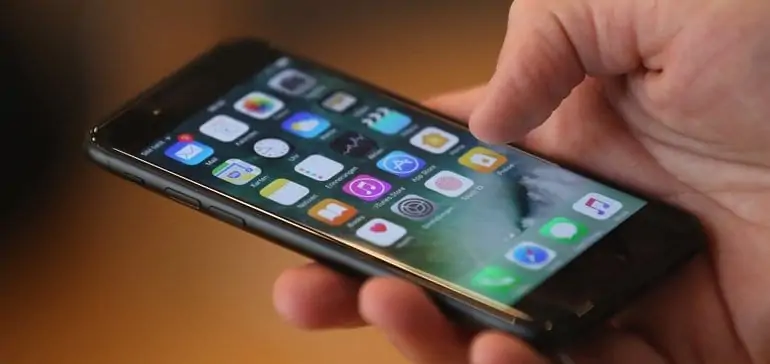Mobile App Development, SEO, Social Media, Uncategorized, Web Development, Website Design
Court Rules that Apple Must Allow Alternate In-App Payment Options, Paving the Way for New Monetization Options
- By Brett Belau
12 Sep

The long-running Apple versus Epic Games legal saga may not have grabbed your attention, given the various technical complexities involved, and the stakes really only relating to major companies seemingly making more money from their efforts. But there is a critical consideration for general social media users within the case notes, which many could have missed – and that element saw a potentially big win today, depending on what Apple chooses to do next.
Today, District Court Judge Yvonne Gonzalez ruled that Apple is no longer allowed to prohibit developers from including external links that direct users to third-party payment platforms from their apps.
The actual terms of the ruling are as follows:
“Apple Inc., and its officers, agents, servants, employees and any person in active concert or participation with them (“Apple”), are hereby permanently restrained and enjoined from prohibiting developers from (i) including in their apps and their metadata buttons, external links and other calls to action that direct consumers to purchasing mechanisms, in addition to In-App purchasing and (ii) communicating with customers through points of contact obtained voluntarily from customers through account registration obtained within the app.”
In summary, iOS apps will now be allowed to direct users to alternative payment platforms, beyond Apple’s own App Store transaction process, which will also mean that companies will no longer be required to pay Apple’s oft-criticized fees on all in-app spending.
Which could be massive for the broader ‘creator economy’, and the push among social networks to provide more ways for users to generate income from their on-platform efforts.
As an illustration of the current state, here’s a breakdown of Twitter’s ticketed Spaces payment flow on iOS devices right now:
- Space ticket price = $5
- 70c goes to Twitter (up to your first $50k in total earnings)
- $1.50 goes to Apple (based on 30% cut of iOS purchases)
- $2.80 goes to the creator
So even though you’re the host, and you’re doing all the work, Apple, based on the current App Store processes, takes a big chunk of your earnings – and this relates not only to ticketed Spaces, but also to Super Follows, newsletter subscriptions, Facebook Live Events, anything that happens in your apps where you look to charge users in-stream.
Now, there may be a way around this, which could facilitate a lot more revenue potential for creators within social apps, and make this new creator monetization push even more effective in fueling opportunities, and thereby maximizing usage of the various apps and functions.
Which, in turn, would also have a major impact on Apple’s revenue.
According to a recent report from Sensor Tower, the App Store generated $41.5 billion in revenue in the first half of 2021, a 22.1% increase year-on-year. Further, as per documents filed as part of the Apple vs. Epic case, gaming apps account for around 70% of App Store revenue, with the majority of that coming via in-app purchases.
Given that Apple could potentially lose such a big chunk of income, it’s inevitable that Apple will appeal the verdict, which means the legal case will drag on for some time yet. But as of right now, from December 9th, apps will be able to provide alternative payment options in iOS apps.
It’s difficult to fathom the full, potential ramifications here.
On one hand, the basic summary is that creators and developers will now be able to make more money, but the flow-on impacts of such could be massive. On an overall basis, Android is the most popular operating system in the world, so in that sense, there would be no real change, but iOS sees particularly high usage in first-world economies, where people are more likely to be spending more in-app.
With this in mind, and again considering the huge income that Apple generates from in-app purchases, all of that revenue will now, potentially, be re-distributed into new streams, which could fund all new platform pushes, all new income options, and could change the motivations for creators, developers, etc.
Which could spark a cascade of major shifts. Again, Apple’s not going to let the ruling go unchallenged, so it seems very unlikely that the December 9th deadline will mean much beyond this on-paper ruling. But it’s a significant decision, and one which could, at the least, force Apple to re-think its processes, and change the game for digital creators and brands.
Source: www.socialmediatoday.com, originally published on 2021-09-10 15:53:05
Connect with B2 Web Studios
Get B2 news, tips and the latest trends on web, mobile and digital marketing
- Appleton/Green Bay (HQ): (920) 358-0305
- Las Vegas, NV (Satellite): (702) 659-7809
- Email Us: [email protected]

© Copyright 2002 – 2022 B2 Web Studios, a division of B2 Computing LLC. All rights reserved. All logos trademarks of their respective owners. Privacy Policy

![How to Successfully Use Social Media: A Small Business Guide for Beginners [Infographic]](https://b2webstudios.com/storage/2023/02/How-to-Successfully-Use-Social-Media-A-Small-Business-Guide-85x70.jpg)



![How to Successfully Use Social Media: A Small Business Guide for Beginners [Infographic]](https://b2webstudios.com/storage/2023/02/How-to-Successfully-Use-Social-Media-A-Small-Business-Guide-300x169.jpg)


Recent Comments